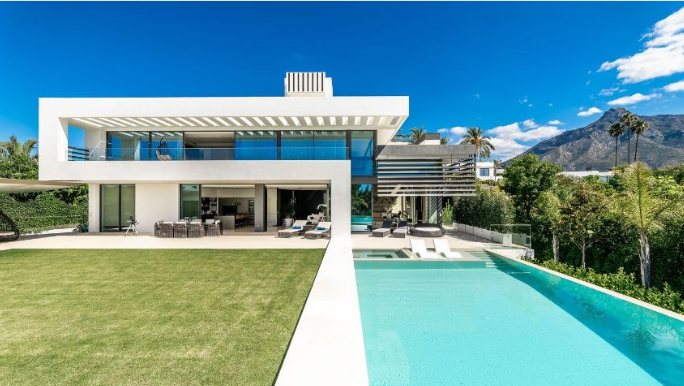
In the wake of the 2008 global financial crisis, more than a dozen European countries tried to plug budget deficits with programmes that included home purchases. Without EU-wide rules, the requirements varied drastically with the birth of what are widely known as "golden visas": from a minimum investment of €50,000 in Latvia to €1.2 million in the Netherlands. In return, investors usually live and work in the country for three to five years and can apply for citizenship.
The EU has long pressured governments to end these visas on the grounds that they are undemocratic and can serve as a means for dirty money to flow into the region. "European values are not for sale," EU Justice Commissioner Didier Reynders said a year ago.
Now, with most European countries in a stable financial position, it is high house prices and increased domestic opposition that are pushing governments to put the brakes on such investments.
Amid growing discontent over rising house prices, the Portuguese government signalled a few months ago that it would end its Golden Visa residence permit programme for foreigners (ARI) as soon as revised legislation was debated and approved by parliament, probably in the next few weeks.
Some popular destinations for applicants are becoming less welcoming. Ireland closed its scheme on 15th February. And Greece says it will double its investment threshold to €500,000 in several places, including Athens. As the Portuguese and Irish programmes come to an end, consultants note that there has been a surge of interest in Greece and Spain.
When it comes to Golden Visas in Spain in 2023, adverse opinions have emerged, such as that of the left-wing political party Más País, and the government is considering tightening the granting of this visa for investment in housing or withdrawing it altogether. Here, a residence permit is granted for three years, extendable to two after a property investment of at least €500,000. According to the Executive's data, 94% of these authorisations have come from residential investment.
Chinese, Russians and Americans are among the biggest beneficiaries
Statistics on a European level are difficult to obtain, but the available evidence suggests that a large majority of those benefiting from the programmes are from China. In Ireland, which granted residency in exchange for an investment of €500,000 to buyers with a personal wealth of at least €2 million, Chinese nationals account for more than 90% of the 1,727 applications approved since 2012.
In Greece, they account for almost 60% of 12,818 "golden visas" in the last decade. In Portugal, the figure is almost half of the 11,758 permits granted since 2012. Before the invasion of Ukraine, many Russians applied for visas in European countries, and the number of Americans seeking residence permits has increased in recent years.
The golden visa programmes brought money to European housing markets: around €3.5 billion a year between 2016 and 2019, according to the European Parliament.
In Portugal, a 2015 revision of the law was designed to boost improvements in the housing stock by reducing the investment threshold by a third for applicants buying a house in need of renovation. In Lisbon, these policies, combined with the lifting of rent price controls and a strong campaign to attract tourists, have been transformative. Cais do Sodré, once a gritty waterfront district of narrow streets, now teems with chic hotels, short-term rentals, gourmet restaurants and luxury boutiques. Along its main thoroughfare, a 133-year-old fish and farmers' market has been converted into a food hall that attracts some four million visitors a year.
Golden visa: "One of the culprits for rising house prices"
But the rejuvenation of one area is the gentrification of another, and rising house prices have fuelled the perception that wealthy golden visa holders have shut out residents. In Lisbon, for example, the average cost of residential housing has tripled since 2015, according to idealista. In Athens, house prices have risen by 48% in the last five years, according to government data. In Dublin, they have risen by 130% since 2012, the government said.
Rising prices have sparked protests in which protesters complain about these visa programmes along with their opposition to gentrification, Airbnb-style rentals and the lack of affordable housing.
There have even been reactions in countries that issue relatively few such permits. In Spain, where only 136 such visas were issued in 2022, it is not uncommon to hear complaints about their effect on the housing market. "It's easy for gentlemen to come and ask for a residence permit and buy a house with half a million euros," said Íñigo Errejón, leader of the political party Más País in Spain, in an interview with Cadena SER last February. "It seems almost colonial".
However, market data suggests that these visas have little influence on property values. In Ireland, only a few hundred visas are issued each year, in a market that saw 60,000 residential transactions in 2022. "The scheme had very little impact," says Ronan Lyons, professor of economics at Trinity College Dublin.
Properties purchased through the scheme in Portugal account for about 0.3% of the country's 300,000 annual property transactions, according to real estate firm The Agency. "That's not enough to affect anything," says Ayres Neto, managing partner of the company's office in Portugal.
Experts and analysts working with these programmes say any negative reaction will be temporary. Countries around the world have long seen the benefit of attracting wealthy, skilled immigrants willing to finance new businesses, notes Nuri Katz, founder of investment firm Apex Capital Partners. "This is unlikely to change. While they may be reformed, they will not become extinct".